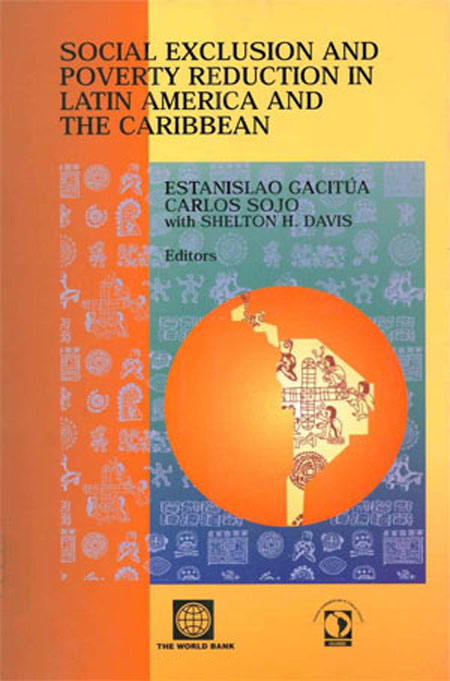| Autores | Título | Documento Digital | Resumen |
|---|
Figueroa, Adolfo |
Social exclusion as a distribution theory | LFLACSO-03-Figueroa.pdf (1.44 MB) | Resumen |
| | | |
Why do Third World countries or regions differ in inequality? The aim of this paper is to develop a theoretical framework that atternpts to explain such differences. The basic idea is to examine the role of the initial conditions in the process o f growth and distribution. Sorne countries "were born" more unequal, more heterogeneous than others. Standard theories have made this factor into an abstraction. These theories have assumed societies where all individuals are homogeneous in every respect, except in their endowments of econornic assets. No other assets are allowed to exist in the economy. This assumption will be abandoned here. An abstract heterogeneous society, which I will call tbe Sigma economy, will be constructed here . |
Sojo, Carlos |
The socio - political and cultural dynamics of social exclusion | LFLACSO-04-Sojo.pdf (1.13 MB) | Resumen |
| | | |
This chapter examines the issue of social exclusion as a social, polítical and cultural phenomenon related to citizenship rights. Reflecting on social exclusion involves both quantitative and qualitative issues because it refers to processes that produce inequalities (regarding material needs) that are clearly subject to numerical examination, as well as to institutional processes that result on power differences among social groups. |
Ordoñez, Jaime |
Basic rights as a reference for explaining the paradigm of citizenship and defining the boundaries of social exclusion | LFLACSO-05-Ordonez.pdf (924.76 KB) | Resumen |
| | | |
This work attempts to explain the development of civil and political rights as weIl as economic, social, and cultural rights over the past ten years by analyzing the normative formation of these legal rights and the existing procedures by which citizens can demand their right to adjudication. The purpose is to show the relationship between determined levels of confirmation
of these rights and the concept of citizenship. |
Trouillot, Michel-Rolp |
Social exclusion in the Caribbean | LFLACSO-06-Trouillot.pdf (1.5 MB) | Resumen |
| | | |
This paper cannot evaluate the literature in a manner that would have been possible if any variant of the social exclusion framework had gained currency in Caribbean Studies, or if the appropriate quantitative data were available. Rather, the opportunity and the challenge here are to bring analytical coherence to an amalgam of data and studies and, beyond them, to the region itself. Thus, data and observations from diverse sources are organized here in an attempt to develop a coherent regional approach.Yet where do we find such coherence? Is not the Caribbean too complex to be enclosed as a single object of analysis? |
Silva, Nelson |
Race, poverty, and social exclusion in Brazil | LFLACSO-07-Silva.pdf (1.32 MB) | Resumen |
| | | |
Research about racial exclusion in Brazil is not a novelty, nor is it scarce. It was initiated at the end of the 70's as a reaction to the anthropological/sociological literature dominant at the time, which rejected the hypothesis that racial discrimination could play an important role in the distribution of opportunities in Brazilian society. |
Thomá Morales, Carolina |
Youth an social exclusion in Chile | LFLACSO-08-Thoma.pdf (1.95 MB) | Resumen |
| | | |
In this chapter, the social exclusion frarnework is used to analyze the situation of youth in Chile. Since this is a relatively new concept, there are some irnportant nuances in the use of the concept. Therefore, this chapter starts by establishing the conceptual and rnethodological irnplications of the social exclusion approach for the case of youth in Chile. |
Clert, Carine |
Social exclusion, gender and the Chilean goverment´s anti-proverty strategy: priorities and methods in question | LFLACSO-10-Clert.pdf (1.55 MB) | Resumen |
| | | |
This paper utilizes a social exclusion framework to analyze the perception and impacts of specific social policy options in a particularly poor Municipality in the metropolitan area of Santiago, Chile. |
